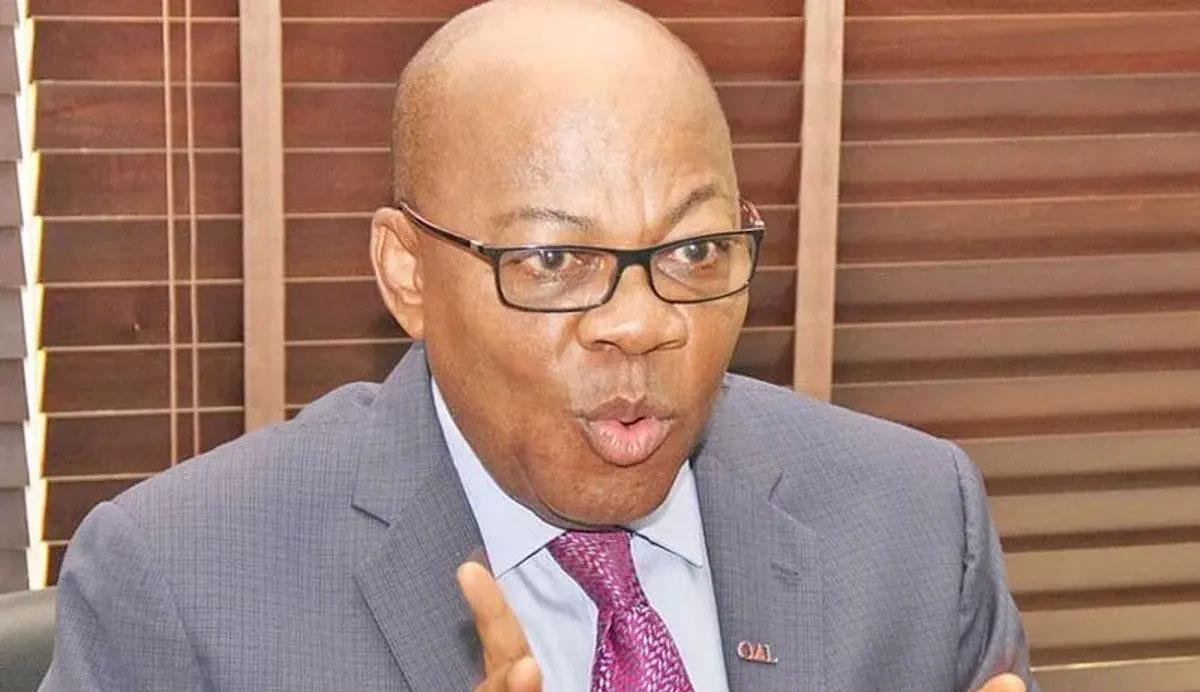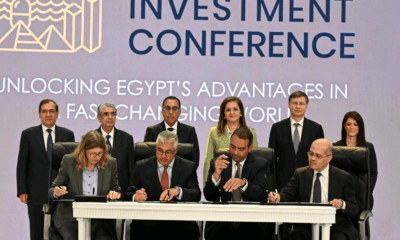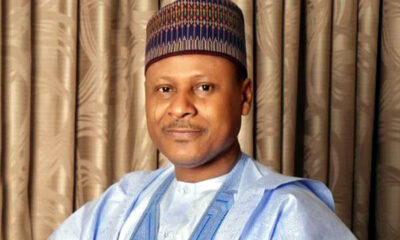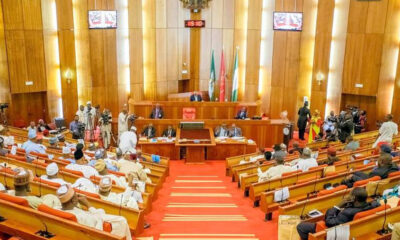News
Minimum wage: FG will continue paying additional N35,000 pending agreement- Minister

Minimum wage: FG will continue paying additional N35,000 pending agreement- Minister
The Federal Government says it will continue paying the ₦35,000 wage award to federal workers until a new national minimum wage is introduced as a show of commitment to the welfare of workers.
This was made known by the Minister of Information and National Orientation, Mohammed Idris, in a statement on Saturday by his media aide, Rabiu Ibrahim.
He however insisted that the government could not pay the ₦494,000 being demanded by the organised labour as the new minimum wage for Nigerian workers.
He lamented that the ₦494,000 would cumulatively amount to the sum ₦9.5 trillion bill to the Federal Government, which might not be affordable or sustainable by employers of labour particularly in the organised private sector and could eventually result in job losses.
He added that the demand is capable of destabilising the economy and jeopardising the welfare of over 200 million Nigerians.
Idris appealed to the labour leaders to reconsider their stand, return to the negotiating table and embrace reasonable and realistic wages for Nigerian workers instead of proceeding on its planned nationwide strike scheduled to begin on Monday, 3rd June.
He said, “The Federal Government’s New Minimum Wage proposal amounts to a 100% increase on the existing minimum wage 2019.
“Labour, however, wanted N494,000, which would increase by 1,547% on the existing wage.
“The sum of N494,000 national minimum wage which Labour is seeking would cumulatively amount to the sum N9.5 trillion bill to the Federal Government of Nigeria.
“Nigerians need to understand that whereas the FG is desirous of ample remuneration for Nigerian workers, what is most critical is that President Bola Ahmed Tinubu will not encourage any action that could lead to massive job loss, especially in the private sector, who may not be able to pay the wage demanded by the organised labour,” he said.
The minister said even though Labour was keen on the take-home pay of about 1.2 million workers, the Federal Government was concerned with the welfare of over 200 million Nigerians and must work on a minimum wage figure that would be affordable, sustainable and in the overall interest of the nation’s economy.
News
Senate okays bill for foreigners in Nigeria to obtain NIN

Senate okays bill for foreigners in Nigeria to obtain NIN
The Senate has advanced a bill to grant all residents, including foreigners, the right to obtain and use the National Identification Number (NIN) sponsored by Deputy Senate President Barau I.
Jibrin (Kano North), the bill also aims to replace criminal penalties with administrative measures to ensure compliance without severe legal consequences.
Senator Cyril Fasuyi (Ekiti North) presented the bill’s principles, emphasizing the need to repeal the current Act and establish a new regulatory framework for the National Identity Management Commission (NIMC) to enhance its oversight and regulation of Nigeria’s ID system.
“The bill’s objectives include expanding the eligible registrants under the Nigeria ID System to achieve inclusivity and universal coverage,” Senator Fasuyi explained.
READ ALSO:
- Almost entire island homeless after Hurricane Beryl disaster
- I never lobbied to extend my tenure — IGP Egbetokun
- SSANU set to shut down varsities tomorrow over four-month salary arrears
“It allows all residents in Nigeria to obtain a National Identification Number (NIN) for official identification purposes.”
Furthermore, the bill proposes streamlined sharing of personal data with robust data protection measures to safeguard privacy and foster public trust in data handling.
It also enhances administrative enforcement powers to ensure timely compliance with ID registration requirements.
Importantly, the bill advocates for replacing criminal penalties with administrative measures for non-use of NIN, aiming to encourage compliance without burdening individuals with severe legal consequences.
After debates, the Senate proceeded to pass the bill, marking a significant step toward potential reforms in Nigeria’s identity management system.
Senate okays bill for foreigners in Nigeria to obtain NIN
News
I never lobbied to extend my tenure — IGP Egbetokun

I never lobbied to extend my tenure — IGP Egbetokun
The Inspector General of Police, Kayode Egbetokun, has debunked reports alleging that he has been lobbying the National Assembly to tamper with the Nigeria Police Act 2020 to elongate his tenure and year of service of personnel in the force.
Force Public Relations Officer, ACP Olumuyiwa Adejobi, disclosed the IGP’s denial in a statement, saying it is vital to clarify unequivocally that the bill was originally introduced during the 8th Assembly but did not progress beyond the initial stages before the Assembly’s dissolution. It is standard legislative practice to review and update laws to align with current national realities.
The proposed amendment seeks to extend the years of service for police officers from 35 to 40 years, and the age limit from 60 to 65 years.
Adejobi said: “The Nigeria Police Force is deeply perturbed by the dissemination of false information across various media platforms, notably the distorted publication by an online media, regarding the proposed amendment to the Nigeria Police Act 2020.
“The misleading publications alleged that IGP Kayode Adeolu Egbetokun personally initiated this bill to prolong his tenure as the 22nd indigenous Inspector General of Police, and has allegedly invested significantly in lobbying lawmakers to facilitate its passage.’
READ ALSO:
- SSANU set to shut down varsities tomorrow over four-month salary arrears
- Despite generating $1tn in 40 years, Nigeria’s debt rose to $91.46bn — Agbakoba
- Biden blames jet lag, travel for poor debate performance
Egbetokun decried a situation where certain media outlets and their sponsors had chosen to propagate baseless accusations, ignorantly disregarding the fact that any modification to existing legislation was designed to enhance its effectiveness and relevance.
The statement read: “To understand the true motivations behind this initiative, one needs only look at the Inspector General of Police steadfast commitment to reforming the Nigeria Police Force.
“His advocacy for this bill stems from a genuine belief in its potential to improve the conditions of service for police officers and thereby bolster security nationwide, rather than seeking personal gain. It comes from the place of duty rather than benefit.“
“Furthermore, it is important to note that the tenure of an Inspector General of Police is already prescribed as four years, with the President being the sole authority empowered to remove an IGP before the completion of his tenure.
”Furthermore, the Nigeria Police Force called on the public to exercise caution and discernment when consuming information, particularly from sources known for sensationalism and unverified claims.
“Such misinformation not only misleads but also detracts from constructive dialogue and efforts towards meaningful police reform.”
I never lobbied to extend my tenure — IGP Egbetokun
News
Despite generating $1tn in 40 years, Nigeria’s debt rose to $91.46bn — Agbakoba

Despite generating $1tn in 40 years, Nigeria’s debt rose to $91.46bn — Agbakoba
Human rights activist and senior lawyer, Dr. Olisa Agbakoba, SAN, yesterday, said Nigeria’s public debt rose to $91.46 billion (N121.67 trillion), despite its ability to generate $1 trillion in 40 years.
Agbakoba identified the alleged exclusion of Nigerians from key value chains, weak enforcement of local content laws, incorporation of foreign agreements, tax avoidance and corruption as possible reasons for the development.
He also called for the implementation of new measures, including the increase of Nigerians’ participation in legal services, shipping, banking, insurance, drilling, oil field services and engineering within the oil and gas industry.
In his presentation, titled ”The Paradox of Nigeria’s Oil and Gas Industry: A Policy Paper”, at an engagement with the media in Lagos, Agbakoba, said: “Over the past 40 years, the cumulative revenue from oil and gas has exceeded $1 trillion, an amount that should have been sufficient to transform the nation’s economy and infrastructure.
“Yet, Nigeria consistently resorts to borrowing, with the total public debt standing at N121.67 trillion ($91.46 billion) as of March 31, 2024, according to the Debt Management Office, DMO.
“There are 36 value chains related to crude oil exploration, with at least seven crucial ones largely excluding Nigerian participation: Legal, shipping, banking, insurance, drilling, oil field services, engineering and construction.
“Over $1 billion worth of legal work is lost to foreign firms annually due to a perception of superior expertise and international experience.
READ ALSO:
- Biden blames jet lag, travel for poor debate performance
- Three Indians abducted on Sagamu – Ijebu-Ode highway
- South-East governors agreed to meet Tinubu over Nnamdi Kanu
“Nigerian shipping companies are not engaged to ship crude oil products due to the absence of a legal framework for developing a national fleet of vessels, leading to significant loss of potential revenue and employment opportunities.
“Funds from crude oil production are often domiciled in foreign banks, sometimes held for months before remittance to the Central Bank of Nigeria, depriving Nigerian banks of substantial business and the economy of potential multiplier effects.
“The Nigerian insurance industry plays a very insignificant and limited role in the oil and gas Industry.
-

 Aviation2 days ago
Aviation2 days agoCustoms ground bank’s jet over unpaid import duty
-

 metro2 days ago
metro2 days agoBREAKING: Pilot survives as NAF helicopter crashes in Kaduna
-

 metro2 days ago
metro2 days agoGunmen abduct 20 travellers along Sagamu-Ijebu-Ode expressway
-

 metro2 days ago
metro2 days agoUK cab driver confesses still getting paid in Nigeria as civil servant
-

 Sports1 day ago
Sports1 day agoUpdated: Amuneke set to be announced new Heartland head coach
-

 Auto1 day ago
Auto1 day agoNigeria loses out as Volkswagen takes auto assembly plant to Egypt
-

 Entertainment3 days ago
Entertainment3 days agoOlu Jacobs alive, wife debunks death rumour
-

 Auto1 day ago
Auto1 day agoLagos will support innovative investors to develop automotive industry – Commissioner













